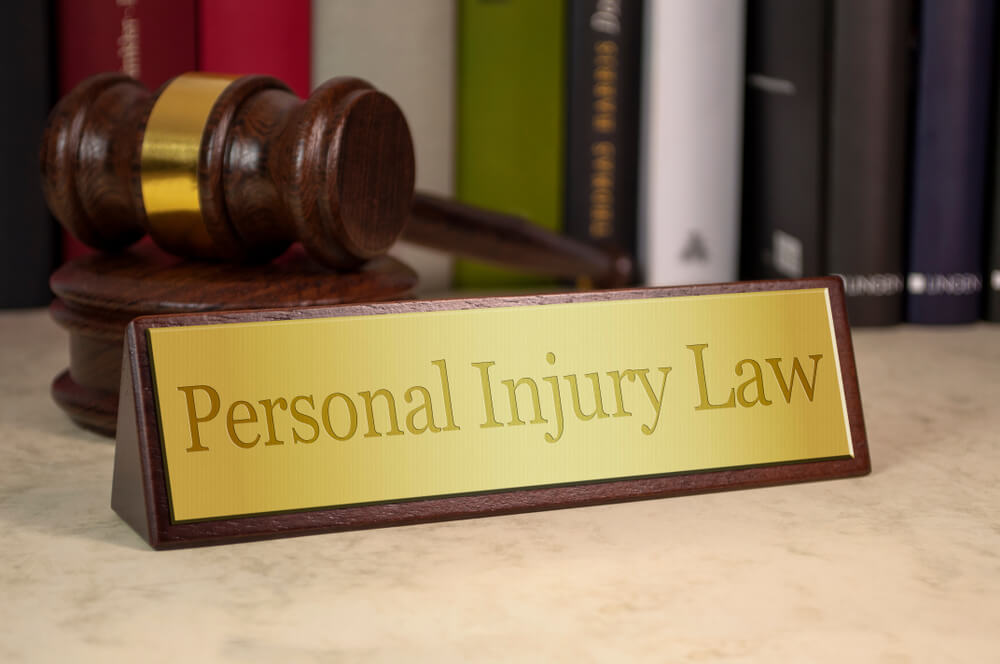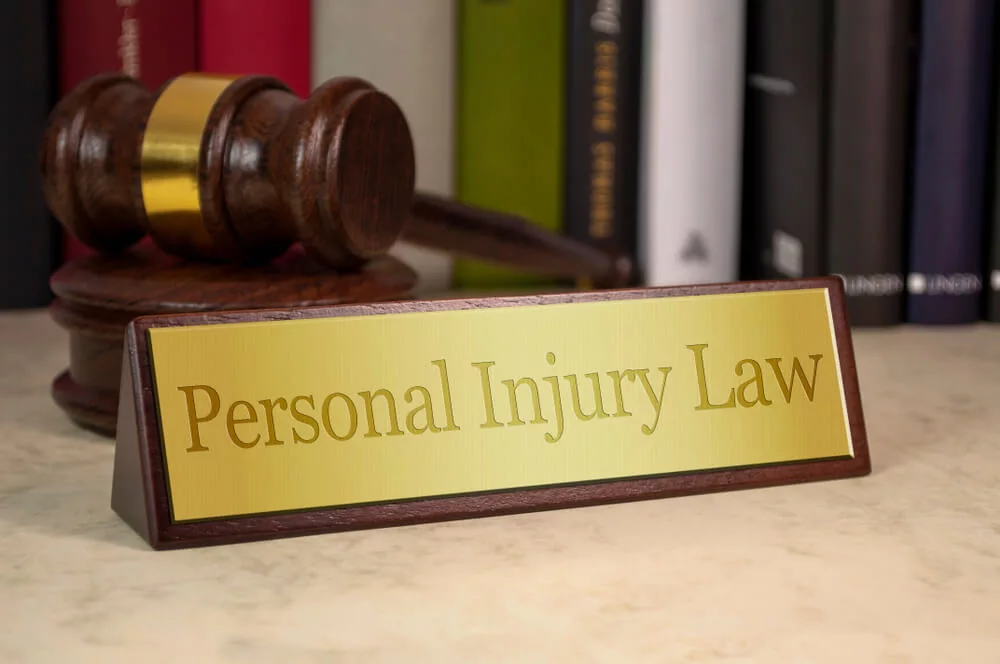Several factors affect how long a personal injury lawsuit takes to reach a settlement. But, generally speaking, it takes one to three years for a case to work its way through the court system, according to research by the National Center for State Courts and the United States Department of Justice. During that time, your case will go through a process that may include gathering evidence, witness testimony, settlement negotiations, and litigation, if your case goes to trial.
If you or a loved one suffered injuries in an accident that kept you out of work for a couple of days and/or resulted in medical bills, talk with a personal injury lawyer about your case before you agree to an insurance company’s settlement offer. You may recover more compensation than you realize you deserve for your losses. A personal injury lawyer can advise you on your legal options and support you through the legal process should your personal injury case go to court. A personal injury lawyer can also cut through insurance company and legal red tape, getting your case to its best possible conclusion as quickly as possible.
Types of Personal Injury Lawsuits

A personal injury is an injury to the body, mind, or emotions. Personal injury law can apply to any personal injury caused by another person or party’s negligence or intentional acts. Personal injury law aims to help injured accident victims recover compensation for their losses, such as medical bills, lost income, pain, and suffering.
Some common cases handled by personal injury lawyers involve:
- Car accidents
- Truck accidents
- Motorcycle accidents
- Pedestrian accidents
- Slip and fall accidents
- Wrongful death
How Often Do Personal Injury Cases Go to Trial?
There is limited data on how often personal injury claims go to trial, but most settle out of court. According to The Law Dictionary, roughly 95 percent of pending lawsuits end in pre-trial settlements. Both plaintiffs and defendants in a personal injury case usually prefer to avoid a time-consuming and expensive trial. Of those that do go to trial, more than 90 percent result in a verdict in favor of the person who brought the suit.
What Is the Personal Injury Claims Process Like?
Building a strong personal injury case takes a while, but the stronger the case, the better your chances of recovering the full compensation you deserve. Here is a general overview of the claims process.
Retaining a Personal Injury Lawyer
Once you decide on legal counsel, you want a personal injury lawyer to evaluate your case. Most personal injury law firms offer free consultations where your attorney will ask questions about your accident and injuries. They may request medical records to verify the injuries and damages. Afterward, your lawyer will advise you on how to proceed.
If you choose to move forward, your attorney may begin by gathering evidence to present to the insurance company.
Settlement Prior to Litigation
Once you complete your initial medical care, your lawyer will gather your medical records, bills, evidence of lost income, and other documents to determine your damages. With your approval, your lawyer will present this information to the insurance company along with a demand for settlement.
The insurer may provide a counteroffer. These negotiations between your attorney and the insurance company may take some time to play out. Your attorney will involve you in the negotiations and may advise you whether to take an offer. You make the decision. If both sides cannot settle, your lawyer can file a lawsuit in civil court. Most cases settle with insurance companies before plaintiff’s file lawsuits.
Filing a Personal Injury Complaint
Your personal injury lawsuit officially begins when you file a complaint with the court, pay the associated filing fees, and serve the defendant with a copy of the complaint. Your lawyer will draft the complaint.
Your lawyer will also consider the statute of limitations for filing personal injury lawsuits in civil court. Florida has a two-year deadline for these cases, starting from the date the injury occurred. Your lawyer will know whether any circumstances shorten or lengthen this timeframe and will file your case before the deadline.
Discovery Phase
In the discovery phase, both parties share evidence before the trial begins. This information may include police reports, medical records, and depositions. Depositions involve taking sworn, oral testimony of a witness in the presence of a court reporter, who then turns it into a written transcript for all the parties.
The discovery process usually begins shortly after the filing of the complaint. Discovery usually concludes about a month before the trial begins.
Settlement Negotiations
Once discovery concludes, your attorney may initiate settlement discussions with the opposing party. These negotiations may range from informal phone conversations between two attorneys to formal mediation or arbitration.
Most cases will settle before the trial sometimes even the day the trial begins. Those that don’t settle may go to court.
Trial Phase
If the parties don’t settle, your case moves to the courtroom for the trial, which usually begins with jury selection. Both sides give opening statements, offer evidence and witness testimony, cross-examine witnesses, and give closing arguments. Afterward, the judge will instruct the jury on its duties. The jury deliberates and then delivers a verdict.
Verdict & Award
If the jury rules in your favor, it will announce a monetary amount the defendants must pay you. If either party disagrees with the verdict, they may appeal. If the appeal succeeds, a new trial or settlement offer may follow. The parties must typically file appeals within 30 days of the verdict.
What Factors Affect How Long a Personal Injury Trial Takes?
A trial typically takes one to seven days.
The time it takes to reach a verdict or settlement in a trial depends on:
- The complexity of the case
- Number of defendants
- The severity of injuries and amount of damages
- Strength of your case
- Strength of the defendant’s case
- The caseload in your jurisdiction
- Number of witnesses testifying
- Each party’s percentage of fault
How Do I Choose a Lawyer for My Personal Injury Case?
It’s natural to feel overwhelmed when searching for an attorney to handle your case. You don’t want to decide without research. You want a lawyer who will take your case seriously and give it the attention it needs, a lawyer who will conduct a full investigation into your accident, gather all evidence necessary to build a strong case, negotiate with insurance companies, and represent you in court should your case go to trial.
Here’s some information you may want to consider when narrowing your search for an attorney:
- Look for a personal injury lawyer with expertise in your type of accident
- Find a lawyer near you
- Review their track record of settlements and verdicts
- Read their client testimonials and Google reviews
- Schedule a consultation with the lawyer about your case
- Make an informed choice based on your research
Proving Negligence in Personal Injury Lawsuits
To succeed in a personal injury lawsuit, you must prove the other party’s negligence. Negligence refers to a person or party’s failure to exercise reasonable care in a certain situation, resulting in harm to another person.
You must establish four elements of negligence for a personal injury claim to succeed:
- The first element is duty of care, which means that the defendant had a legal obligation to take reasonable care to prevent harm to others.
- The second element is breach of duty, which means the defendant failed to meet this obligation.
- The third element is causation, which means the defendant’s breach of duty caused the plaintiff’s injuries.
- The fourth element is damages, which means that the plaintiff suffered actual harm as a result of the defendant’s breach of duty.
Duty of Care
To prove that someone had a duty of care, you must show that a reasonable person in the same situation would have recognized that their actions could harm another person. This means that the defendant had a responsibility to take reasonable steps to prevent harm.
Breach of Duty
Breach of duty refers to a situation where the defendant fails to act with the level of care that a reasonable person would have exercised in the same situation. In other words, the defendant did not take reasonable steps to prevent harm to the plaintiff, even though they had a legal obligation to do so.
Causation
To establish breach of duty, you must also show that the defendant’s failure to meet the standard of care caused your injuries. You must show a direct link between the defendant’s actions (or lack of actions) and the harm you suffered.
Damages
In a personal injury case, damages refer to the losses that the plaintiff suffered because of the defendant’s negligence. Damages can fall into two main categories: economic and non-economic.
Economic Damages
You can quantify economic damages in monetary terms. Economic damages include medical expenses, lost income, and property damage. Medical expenses include the cost of hospitalization, medication, and rehabilitation. Lost income refers to the earnings that the plaintiff has lost as a result of the injury, including paid time off and other workplace benefits.
Non-Economic Damages
Non-economic damages do not come with explicit bills, but they take a toll. They include pain and suffering, emotional distress, and loss of enjoyment of life. Pain and suffering refer to the physical and emotional pain that the plaintiff experienced due to the injury. Emotional distress includes anxiety, depression, and other psychological conditions that resulted from the accident.
Do I Need a Lawyer for My Personal Injuries?
If you or a loved one suffered serious injuries, lost income because your injuries prevented you from working, and are facing mounting medical bills, a personal injury attorney can help you obtain full compensation for your losses.
Serious accident-related injuries can require extensive medical treatment, which can financially strain families.
Our personal injury lawyers strongly advise you not to accept any offers from an insurance company until you consult an attorney. At first glance, an insurance company’s settlement offer may look like a godsend. Probably it will shortchange you, and leave you to pay thousands of dollars in accident-related expenses on your own.
Insurance companies are notorious for offering settlements that do not compensate you for the full value of your damages. And most people don’t know about all of the damages they can claim. A personal injury attorney will investigate your accident and review your medical bills to determine the full extent of your damages. They will also negotiate with insurers for you so you can focus on your recovery.
Having an experienced personal injury attorney on your side offers you peace of mind knowing that a professional will handle the legal aspects of your case with your best interests in mind.
Contact a Personal Injury Lawyer Today
Whether you suffered injuries in a car accident, truck accident, or slip and fall incident, working with a personal injury attorney greatly improves your chances of recovering maximum compensation for your damages.
Lawyers will not slow down the process, except when it will benefit you if they delay the conclusion of your personal injury lawsuit, they will do so to save you from accepting a settlement that won’t cover your costs. A personal injury lawyer may actually speed up your case by forcing the insurance company to return calls and negotiate in good faith, leading to a faster and fairer resolution than you could achieve on your own.
Look for personal injury lawyers with the experience, client approval, and track record you need. Then contact a personal injury law firm in Miami today for your free consultation and case evaluation.
Related articles
Related articles Related articles Related articles Related articles Related articles Related articles Related articles Related articles Related articles Related articles
Personal Injury
02 Feb 2024
How Long After An Accident Can You Claim Injury?





